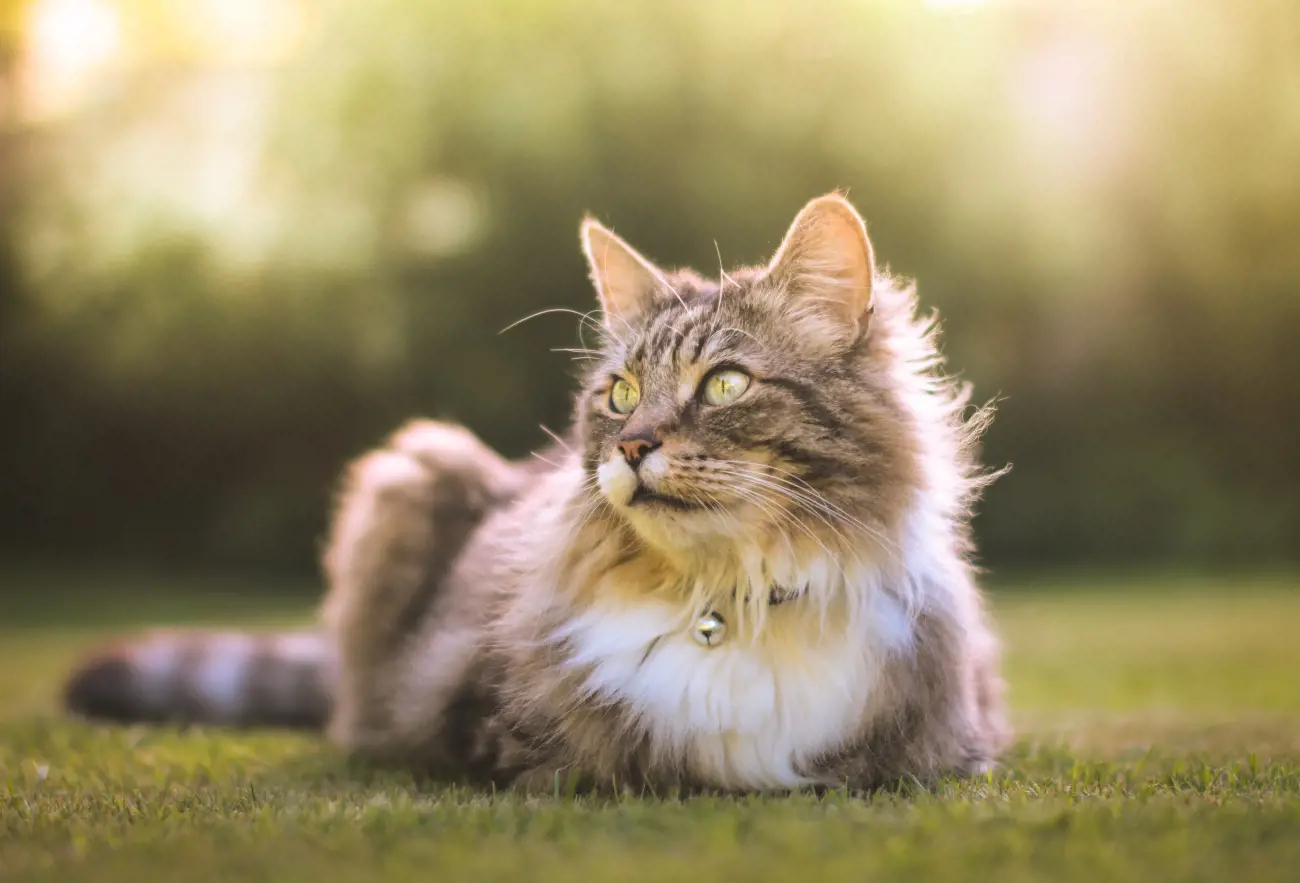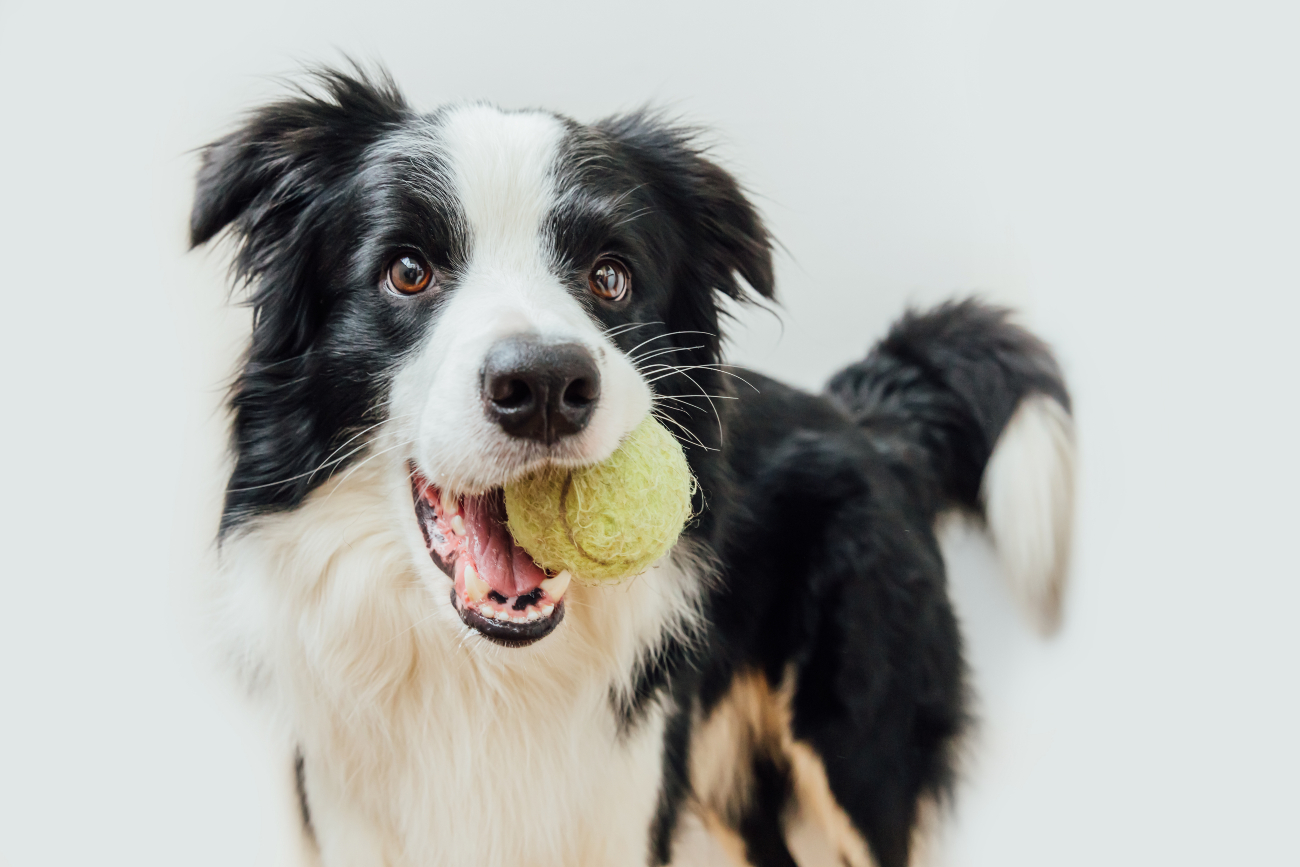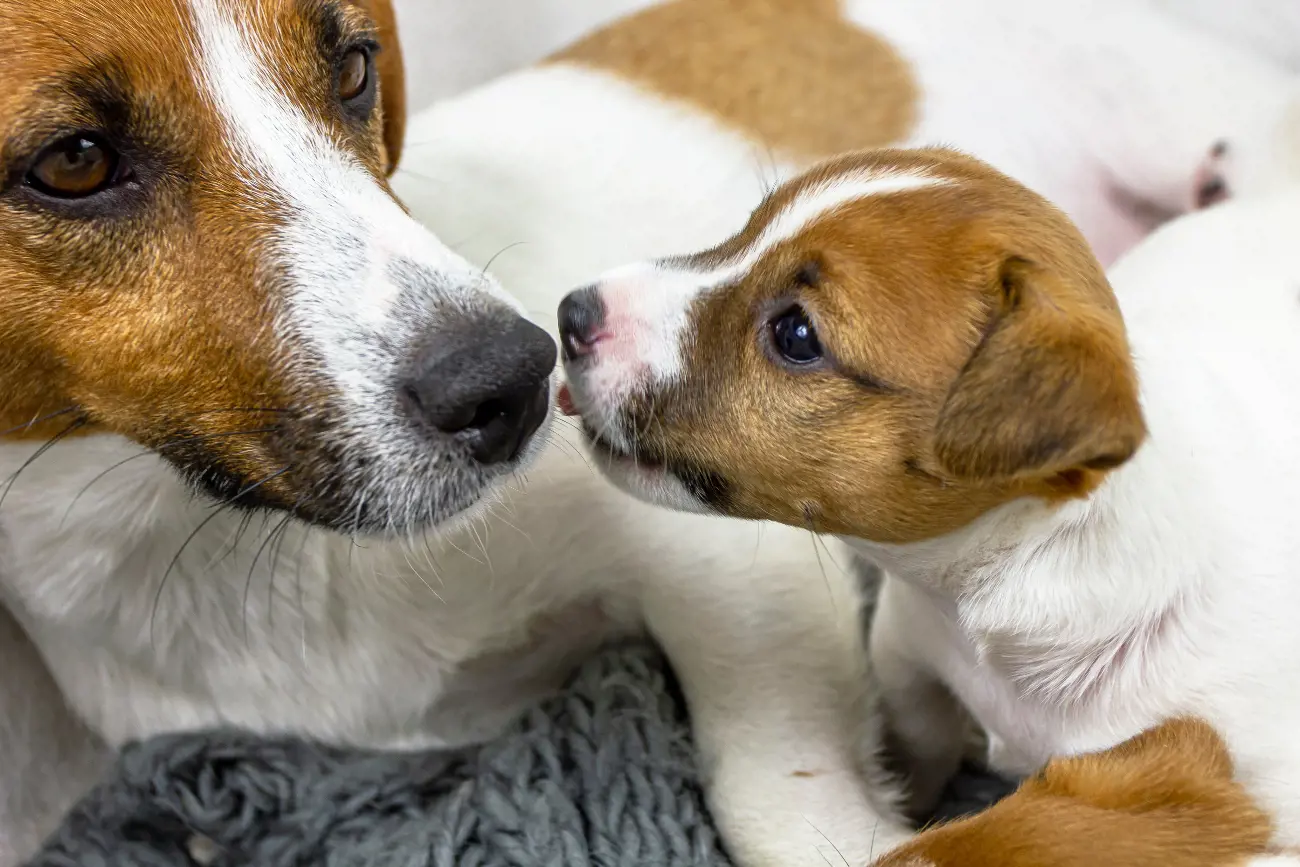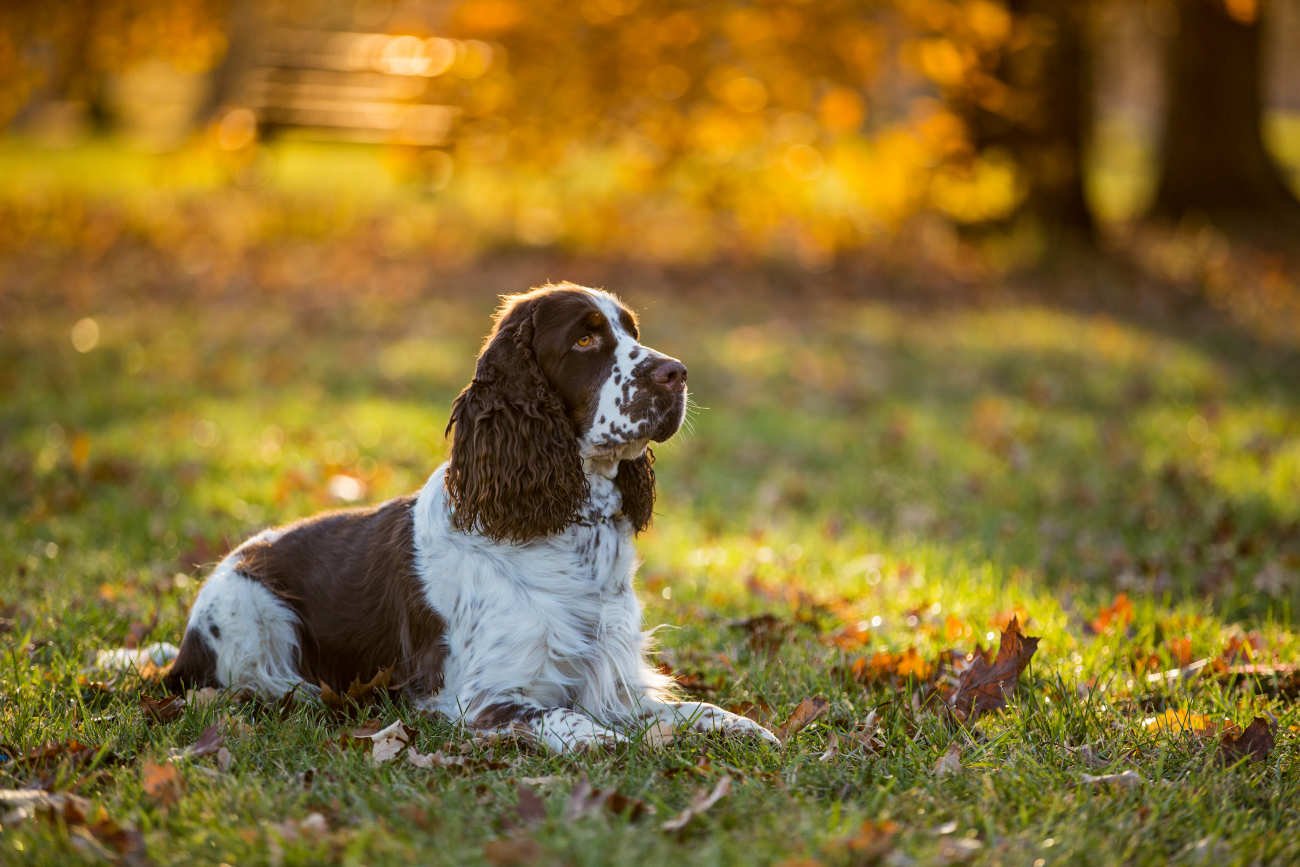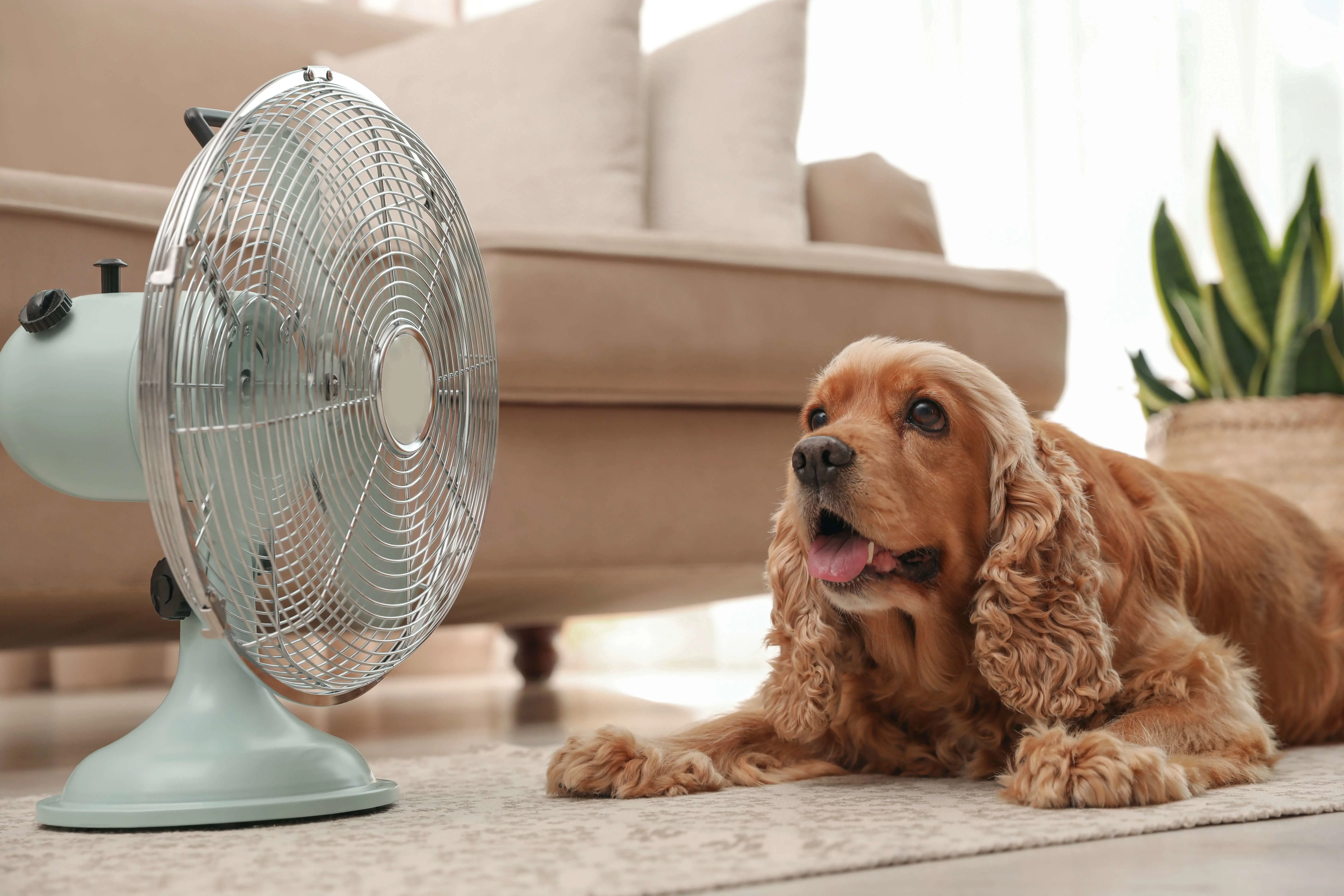Are Poinsettias poisonous to cats and dogs?
30th May, 2023
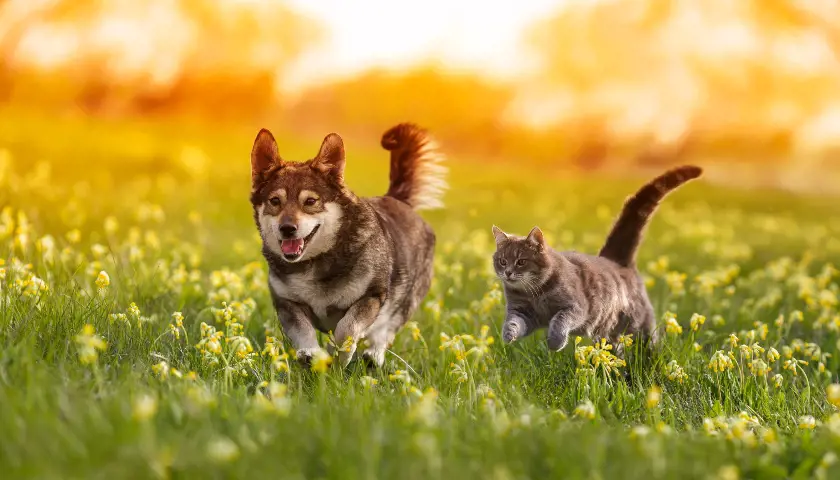
Could this popular household plant spell trouble for your pet? Discover the signs of poisoning and how to save your cat or dog.
From toxic plants and everyday human foods to household chemicals and medicines, there’s a wide variety of substances that can cause harm to your beloved pet. So, if you’re wondering whether poinsettias are poisonous to cats and dogs, then we’ve got the answer right here and a lot more besides.
While pet insurance will always be there to help if your pet becomes ill after eating something they shouldn’t, it’s much better to prevent the danger in the first place. Remember, the cat insurance cost may end up being more manageable than emergency treatment.
Are Poinsettias poisonous to cats and dogs?
A poinsettia (Euphorbia pulcherrima) is a popular plant we often bring into our houses around Christmas time, although they can look great throughout the year. Native to Mexico and Central America, poinsettias are particularly well known for their striking red and green foliage.
But it’s those stunning leaves and stems that can cause a problem for our furry family members. Poinsettia sap can irritate the mouth and digestive system of cats and dogs if eaten.
If your pet has eaten a plant like this, you might notice:
- Gastrointestinal symptoms including vomiting, diarrhoea, and loss of appetite.
- Skin irritation or dermatitis in some pets after touching the plant.
While these symptoms often resolve on their own within a few days, if your pet eats a poinsettia plant then it’s a good idea to monitor them for signs of any symptoms. And to contact your vet if you’re concerned.
In the majority of cases, vet treatment won’t be necessary unless the symptoms become severe or long-lasting. Pet food specialist Purina says a pet would need to eat a large amount of poinsettia to get seriously ill.
But while poinsettias aren’t as toxic as some other plants, it’s probably best to choose a different flower to celebrate the festive season. Particularly if your pet pal has a tendency to munch on any new plants you bring home.
There are a number of other popular Christmas-time plants that are also poisonous. The Kennel Club has written an interesting article all about Christmas plants that are poisonous to dogs, many of which can also be harmful to felines.
What other plants are poisonous to dogs and cats?
Many common household and outdoor plants can be toxic to dogs and cats if eaten. Be aware the effects can be more severe depending on whether it’s a cat or dog that ingests the plant.
Common examples of poisonous plants you might see in your house or garden include:
- Lilies: All parts of the lily plant are particularly toxic to cats and can cause kidney failure if ingested. There have been a number of tragic cases of poisoning from lilies. Indeed, this cat charity recently warned of lily poisoning risk after a fatal case. Cats Protection has more information here.
- Sago palms: Sago palms contain a toxin called cycasin that can cause liver failure in dogs and cats and can be fatal.
- Azaleas and rhododendrons: These plants contain a neurotoxin called grayanotoxin that affects the body’s nerve cells and can cause vomiting, diarrhoea, and in severe cases, seizures and coma.
- Tulips, hyacinths and irises: These plants contain a toxic alkaloid that can cause vomiting, diarrhoea, and abdominal pain in pets. The bulbs are the most dangerous parts.
- Autumn crocus: While spring crocus can cause gastrointestinal upset, it’s the autumn blooming crocus that’s most toxic. This plant contains colchicine, a toxic alkaloid that can cause vomiting, diarrhoea, liver and kidney damage and even bone marrow damage.
- Oleander: A very popular ornamental garden plant, oleander contains a highly toxic cardiac glycoside called oleandrin. This can cause vomiting, diarrhoea, heart problems, blood pressure changes, neurological signs and in severe cases, death.
- Castor Bean: The castor bean plant contains ricin, a highly potent toxin that can cause vomiting, diarrhoea, dehydration, seizures and in severe cases, kidney and liver failure.
This is by no means an exhaustive list, and many other common plants can also be toxic to your pets. Check the Kennel Club for further information, while the Cats Protection also holds a list that’s well worth checking out before you purchase any new plants for your garden.
If you’re currently looking to create a pet-friendly outdoor space for the warmer months ahead then be sure to check out our handy Purely Pets ‘how to create a pet-friendly garden’ guide. Just remember, whatever the size of your budget, one of the best things you can do to keep your pet protected is to invest in insurance.
Purely Pets' Lifetime Gold products carry a 5* Defaqto rating so remember that when comparing cat insurance costs.
What other household products could harm my pets?
Your home is a sanctuary for you and your animals, but it’s also full of potential dangers. Watch out for these normal household items that could cause issues for your pets.
- Medications: Many over-the-counter human medications, such as paracetamol and ibuprofen, antidepressants, and heart medications, can be toxic to animals.
- Flea and tick medication: Never use flea and tick medication made for dogs on your cat!
- Household products: From cleaning chemicals to insecticides and rat poison there are many products around the house that can be toxic to pets. Keep all products in their original containers with the label intact and stored in a secure, out-of-reach area. Always follow the label instructions carefully and keep pets away from the area during and after use.
- Human foods: Chocolate, caffeine, onions, garlic, and grapes are just some of the human foods to be avoided. For example, chocolate contains theobromine, a toxic substance that can be fatal to pets while grapes and raisins can also cause kidney failure in pets if eaten.
- Xylitol: Extremely harmful to dogs, xylitol is often found in sugar-free chewing gum and sweets. Read our guide on xylitol poisoning in dogs to find out more.
- Essential oils: Particularly if undiluted, essential oils can be harmful to pets. This Cats Protection guide has more details.
- Salt: Salt can be poisonous to pets and is found in many items around the house. Cats Protection even warns against the use of Himalayan Salt Lamps in your home.
- Alcohol: Alcohol is toxic to pets. Pets can be exposed to alcohol through drinks or liquids that have been left unattended, through ingestion of fermented foods, or by licking up spills.
- Tobacco: Nicotine in tobacco products is highly toxic to pets. Pets can be exposed to nicotine through ingestion of cigarette butts, chewing tobacco, or nicotine gum.
- Antifreeze: Antifreeze contains ethylene glycol, a toxic substance that can cause kidney failure in pets if ingested. Pets can be exposed to antifreeze through leaks or spills in garages or driveways, or by licking it up off the ground.
- Blue green algae: Found in freshwater and seawater, it blooms from late spring to early autumn and is extremely toxic. Keep your pet away from any water that looks like it’s got algae growing in it. The British Veterinary Association issues an annual warning to pet owners about the dangers of blue green algae.
This is just a short list, but we’ve found lots more dangerous foods and substances for your dog.
Everyone knows the benefits of pet insurance. But what’s included in the dog or cat insurance cost at Purely Pets? As well as a host of benefits, you’ll get access to vet video consultations 24/7 – professional advice when you need it most.
In some cases, treatment may be necessary to remove the toxic substance from the body, such as through activated charcoal or dialysis. Early treatment can be the difference between life and death for a pet that has been poisoned.
Are dogs or cats more likely to be poisoned?
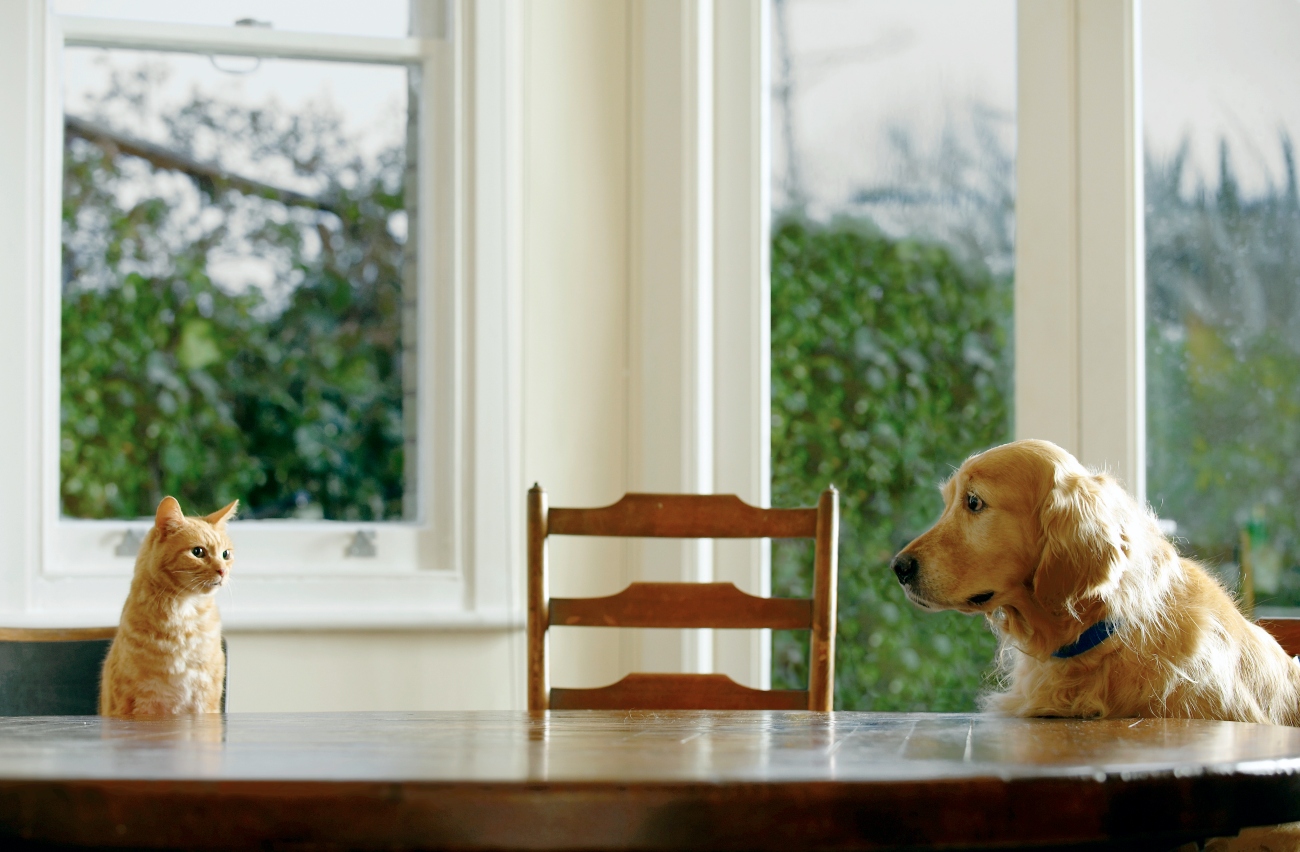
Both cats and dogs can be susceptible to poisoning, although cats usually suffer more. This is because:
- They tend to be smaller than dogs. This means it can take less of a substance to cause problems.
- They have different biological mechanisms than dogs and are sometimes less able to remove toxins from their body.
- They spend more time roaming outdoors. Unlike dogs, cats are often left to wander around outside on their own. This makes them more likely to come into contact with potentially harmful substances. Owners are also less likely to know what the poison is and how their cat came into contact with it.
- Tendency to explore their environment with their mouths. This can make cats more susceptible to certain types of poisonings, such as those related to plants or chemicals commonly found in the home.
- Grooming habits. If a poisonous substance gets on their coat, then a cat may accidentally ingest it as they groom themselves.
But there are also risks for dogs because of their curious and exploratory nature. Whether intentionally or by accident, they may eat substances that are harmful to them such as toxic plants, human medications, contaminated food or household chemicals.
Is your dog a champion chewer? Toys, bones, and household items can all cause issues for your four-legged friend. Check out our Good Behaviour video series and learn how to put a stop to destructive chewing.
The RSPCA has also warned owners about a seasonal canine illness that may potentially be caused by poisoning. There have been reports of a number of mystery dog illnesses reported in late autumn after walking in woodland. The cause is unknown but owners must stay aware of potential symptoms.
Whether you have a cat or a dog, poisoning can be a big worry for pet owners. The helpful team at Purely Pets can provide you with an online quote for your pet in minutes. It’s so easy to find a dog or cat insurance cost that suits you and your budget.
What are the signs of poisoning in cats and dogs?
Your hound is being sick and looking tired and lethargic. Could they have eaten something poisonous? Here are other symptoms to look for:
- Vomiting: The most common symptom of poisoning in pets. It can range from mild retching to repeated, forceful vomiting. In some cases, the vomit may contain blood or a foreign substance.
- Diarrhoea: This can be loose, watery stools or even contain blood. This can occur at the same time as vomiting or may appear on its own.
- Lethargy: You may notice a decrease in energy levels, lack of interest in playing or going for walks, and general sluggishness.
- Loss of appetite: Ranging from a mild pickiness to a complete refusal to eat or drink.
- Abdominal pain: Restlessness, whining, panting, and abdominal tenderness when touched are all signs your beloved pet is in pain.
- Irritation of the mouth and tongue: Pets may drool, paw at their mouth, or have difficulty swallowing if they’ve eaten something that is irritating to their mouth.
- Seizures: Seizures can occur in pets if they have ingested a toxin that is affecting their nervous system. This can include convulsions, loss of consciousness, and muscle twitching.
- Heart problems: Some poisons can cause heart problems in pets, such as arrhythmias, tachycardia, or bradycardia.
- Difficulty breathing: This can include rapid or shallow breathing, panting, or coughing.
- Changes in skin colour or appearance: Yellowing of the whites of the eyes or gums, or a change in the colour of the skin or gums need to be investigated.
- Excessive drooling: This can be in the form of increased saliva production, dribbling, or a change in the consistency of the saliva.
- Coma: In severe cases, pets may slip into a coma if they have been poisoned by something highly toxic.
It’s important to note that these symptoms can be caused by many other factors besides poisoning. So, a thorough examination by a trained veterinary professional is necessary to determine the cause and provide proper treatment.
If you need advice, the Purely Pets 24/7 vet video consultations are always on hand.
I think my pet has been poisoned. What should I do?
When it comes to protecting your pet’s health, time is of the essence. So, if you think your cat or dog has been poisoned, take immediate action and follow these steps:
- Call your vet: If you suspect your pet has been poisoned, immediately call your vet for guidance. They will be able to advise you on what to do next and whether to bring your pet in for treatment.
- Collect evidence: If possible, collect any remaining poison or the container it came in to take to your vet. Don’t touch the poison yourself.
- Keep your pet calm and still: If your pet is still conscious, keep them calm and still to prevent them from spreading the poison through their body.
- Clean off any poison: If their skin or fur is contaminated, wash it off with a pet shampoo and water.
- Don’t give them human medication: Don’t try to make them sick.
- Keep them away from other pets: To prevent cross-contamination.
- Transport your pet to the vet: Take your pet to the vet as soon as possible, even if they’re not showing any symptoms yet.
- Provide information: When you arrive at the surgery, be prepared to provide information about when and how the poisoning occurred, what the poison is and how much they have been exposed to, and what symptoms your pet is displaying.
It’s important to remember that early treatment is crucial in cases of pet poisoning. The earlier that treatment is started, the better the prognosis for your cherished friend.
Purely Pets is always looking for ways to help. For more details on what to do if your cat or dog has been poisoned read our handy guide.
Having insurance in place is an important way to help. To find out the average cat insurance cost per month, speak to our team of specialists about a quote or to discuss your options in more detail.
9 top tips for keeping your cat or dog safe from poisoning
As a caring pet parent, you need to be on the lookout for potential sources of poisoning.
- Keep household products out of reach.
- Only give your pet animal-safe food and treats.
- Dispose of rubbish properly and keep bins out of reach of pets.
- Remove toxic plants from your home and garden.
- Keep houseplants and cut flowers out of reach and pick up any dropped petals or leaves.
- Store chemicals safely and clean up any spills immediately.
- Store tablets or medicine in their original boxes.
- Stay up to date on potential poisons that could be in your home or your pet might encounter while out and about.
- Know the symptoms of poisoning so you can get help quickly.
How much will cat insurance cost at Purely Pets?
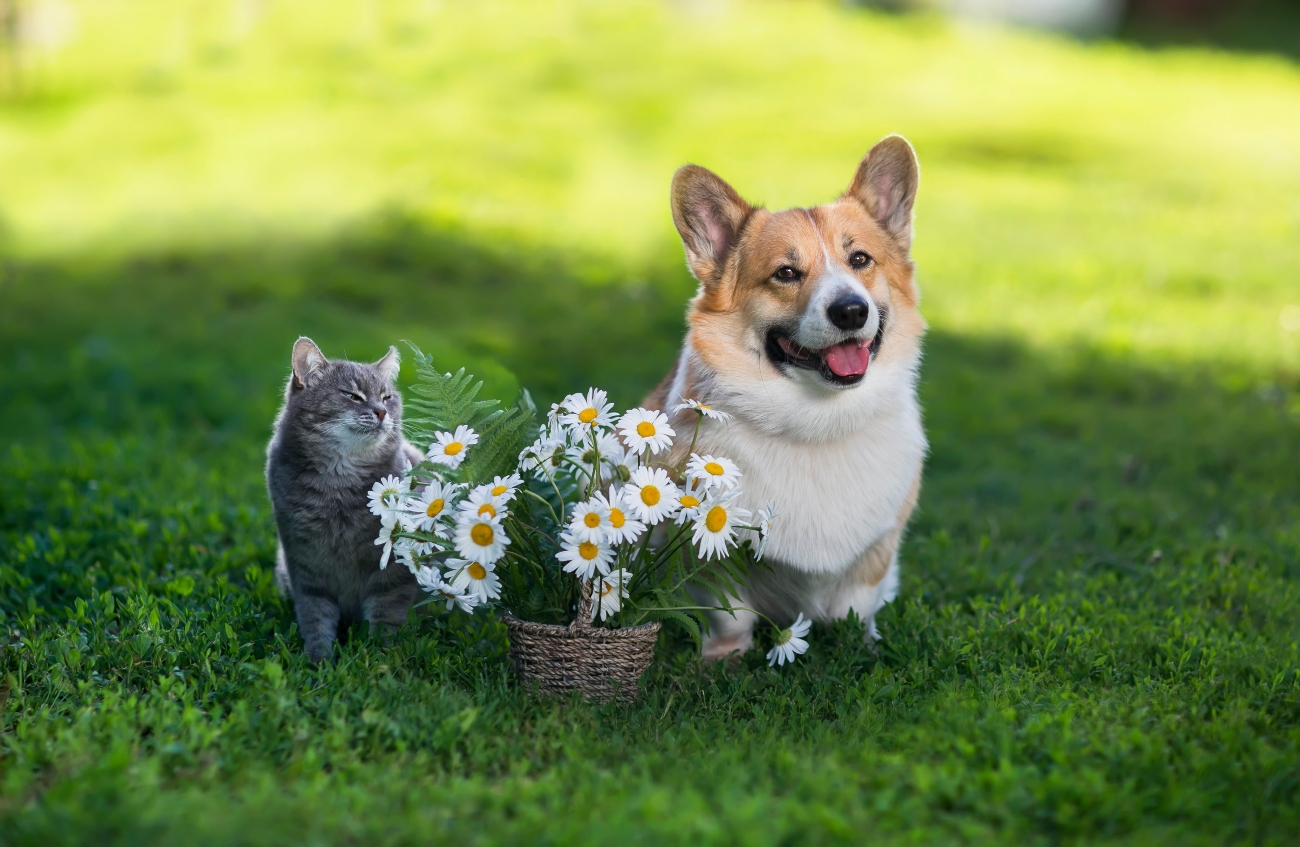
With the cost of living on the rise, we’re all looking at ways to save. You might think insurance is something you can do without but could you really afford unexpected vet bills in an emergency?
The dog or cat insurance cost at Purely Pets will depend on a number of factors including:
- The amount of cover required
- The breed of your pet
- The level of excess you’re willing to pay
But remember, our dog or cat insurance cost also includes a range of benefits like:
- 24/7 vet video consultations
- Online policy management portal
- Earn £15 when you refer a friend to Purely Pets
With 15 levels of cover to choose from and up to £15,000 worth of protection available, we understand what pet parents are looking for.
If you have an older animal, we don’t discriminate! There’s no upper age limit when joining Purely Pets.
Your cat insurance cost might be less than you think. Get a quick quote today and find out!
Helpful Pages
Recent Posts
Pet Insurance Quote
- 98% claims paid *
- Claims paid directly to vets
- 24/7 vet video consultations
- Interest free monthly payments
